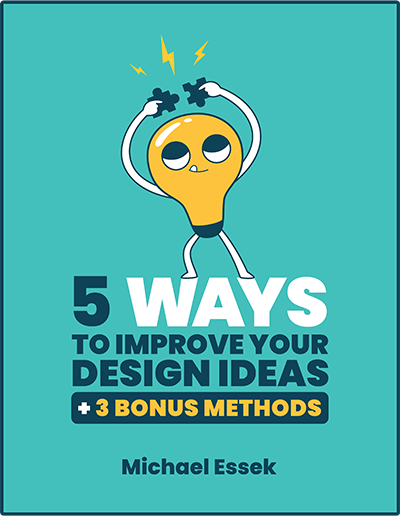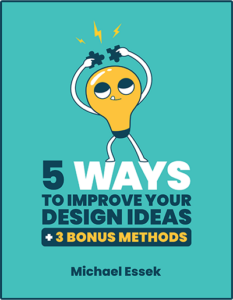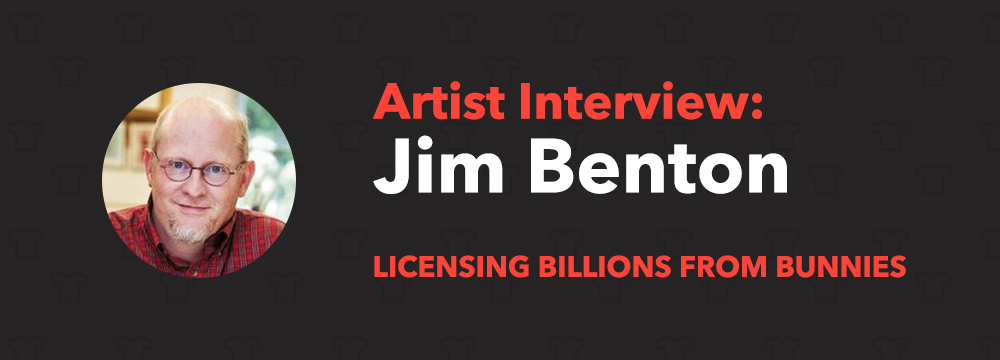
Billions From Bunnies: An Interview With Jim Benton
by Michael Essek · Updated: March 7, 2020Is it a cartoonist? Is it a children’s author? Is it the mind behind the licensing behemoth ‘It’s Happy Bunny®’?
The answer is yes – because it’s Jim Benton.
I bumped into Mr. Benton at the Licensing Expo in Las Vegas last year, and he was kind enough to let me pick his brain for this ‘ere blog post.
My personal thoughts and takeaways follow, but first let’s dive into the incredibly productive mind of the man himself.
Ladies and gentlemen, I give you: Jim Benton…
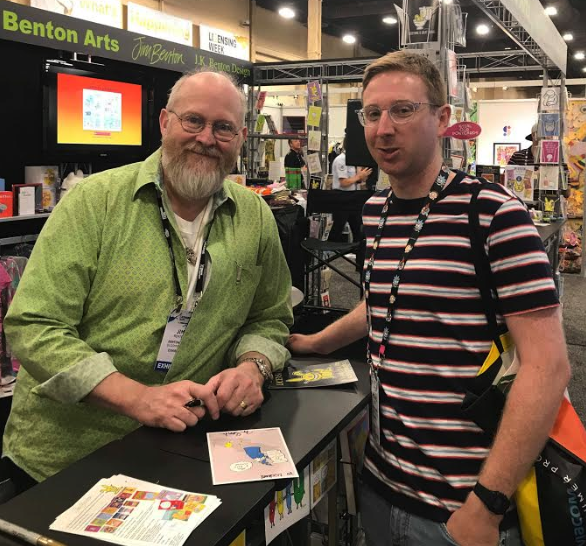
Jim Benton and myself
Q: Can you give us a potted version of your career history – how did you get to where you are today?
Yes!
I started out designing T-shirts and freelancing for newspapers and magazines. I was a contributing editor for Writers Digest Magazine for years.
Then I began licensing a huge amount of my art on apparel, and the attention from that landed me in a write-up in People Magazine.
That’s where it started, and led to;
- publishing a book of cartoons called “Dealing With The Idiots In Your Life“.
- Several licensing programs later, I created a TV show for FoxKids called “The Secret Files Of The Spydogs”.
- I also started joke writing for “Whose Line Is It Anyway” and “American Greetings”.
- I began a series for Simon and Schuster called “Fanny K. Stein“, and book #8 in that series just came out.
- I created a brand called “It’s Happy Bunny®” that has sold ¾ of a Billion dollars at retail.
- I began a series called “Dear Dumb Diary” that had sold almost ten million books and I co-wrote and produced a made-for-tv movie musical based on it.
- Two new series, “Catwad” from Scholastic, and “Clyde” from YoeBooks/IDW have just launched.
- The “Life And Times Of Bill Waddler” comes out from Papercutz next year. [May 26 2020]
- And I’m relaunching “It’s Happy Bunny®” for its 20 year anniversary.
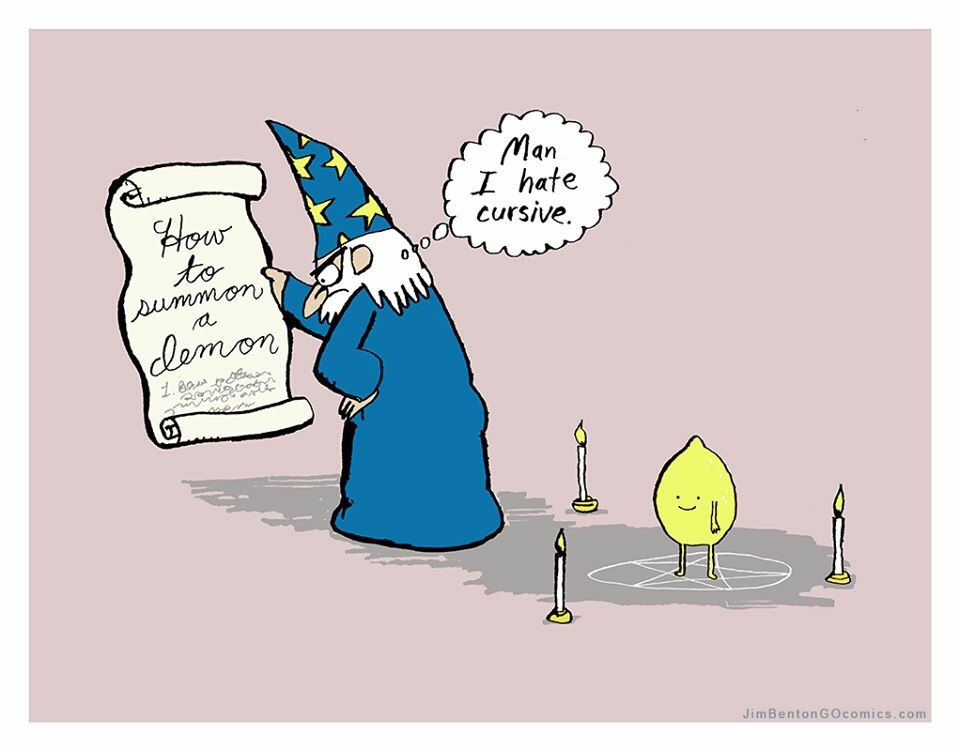
by Jim Benton
Q: I read that you used to work in a Shirt shop, and you started out by designing t-shirts. How did that impact on what followed after?
It taught me to work quickly and shift styles when I needed to.
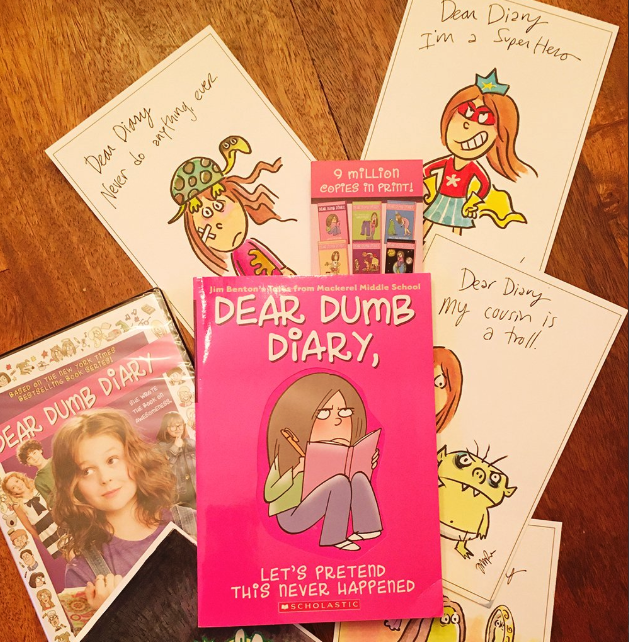
Dear Dumb Diary By Jim Benton
Q: What does a normal day look like for you? Do you just sit down and see what happens, or do you work project to project?
There are a lot of deadlines, so most often I have to go after whatever is next in line.
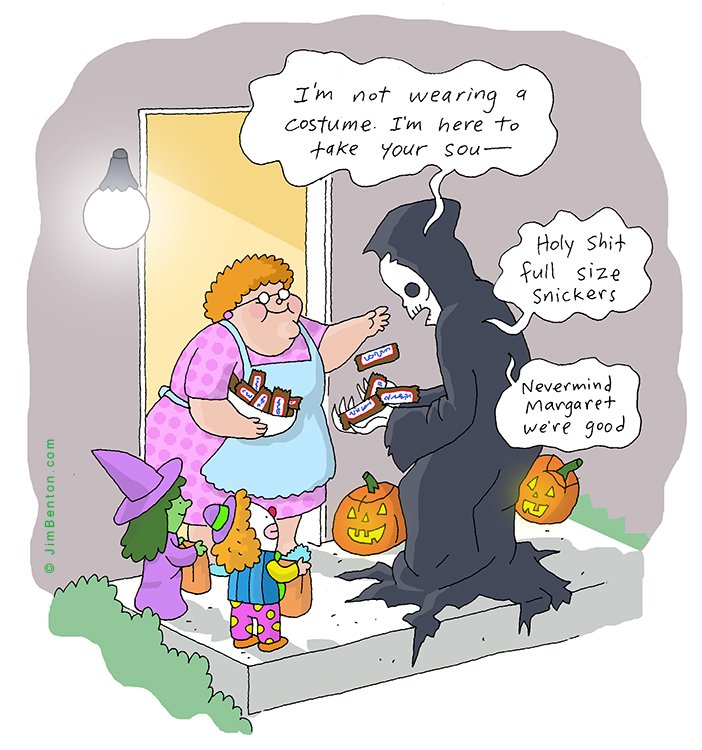
By Jim Benton
Q: Can you tell us about your first ‘deal’ (whether a licensing deal or book deal) – and how that came about?
While I was working at the t-shirt shop, a retailer wanted to use my art on product they were selling.
I read as much as I could on the subject, and came up with a minimum fee and royalty requirement.
Also, I insisted that I owned the copyrights to all my work. I didn’t know the word “licensing” yet. I was pretty young.
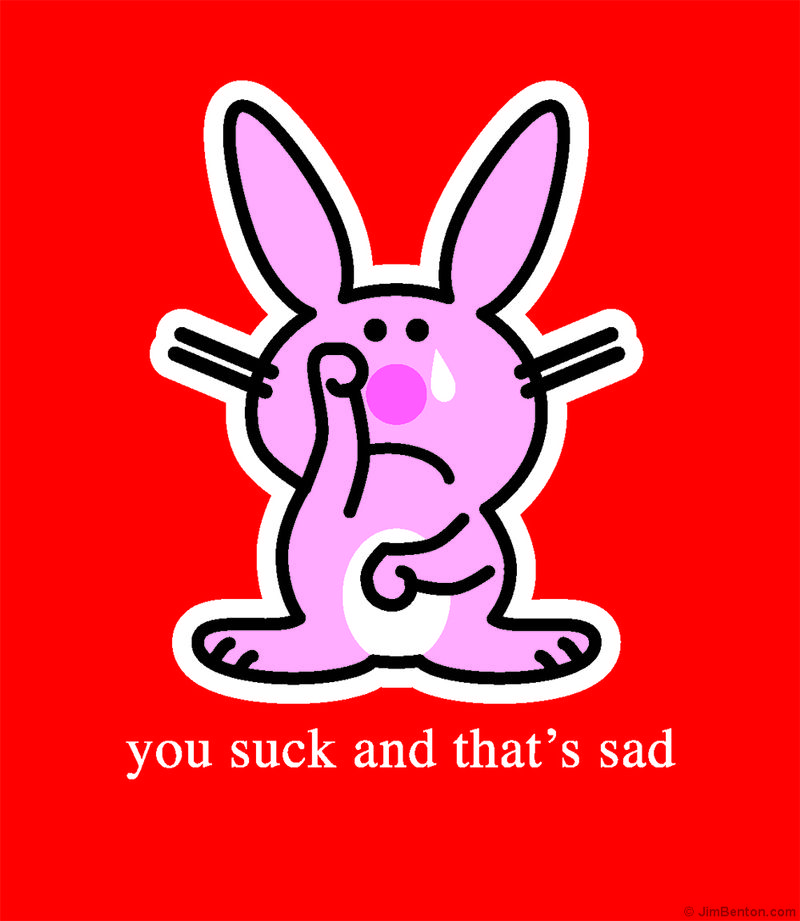
“You Suck And That’s Sad” by Jim Benton
Q: “It’s happy bunny®” has been a humongous licensing success – how did it begin, and how (and why) do you think it become such a big hit?
It began as a sketch I did and pinned up on a bulletin board. (I have a lot of sketches pinned up).
The first one said “you suck and that’s sad.” It kind of made me laugh every time I looked at it, so I decided to start showing it to manufacturers.
After Hot Topic tested a few shirts and they did well, many manufacturers came looking to do deals.
I think it got big because at the time it was a little unexpected, also, I had great licensees making great products. Also, the retailers were behind it. Not sure which causes which…
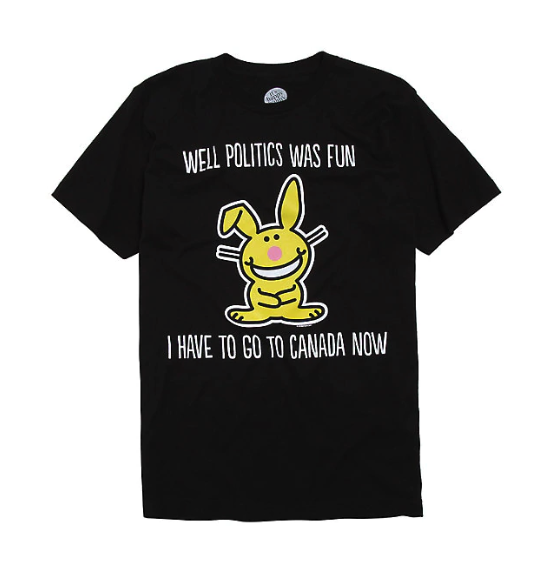
“Its Happy Bunny®” at Hot Topic
Q: Do you have an agent who represents you when it comes to licensing deals, or do you manage all that yourself?
I have a manager, and agents for some things, and some projects I do myself.
Agents can be great, and they can also let you down. Your Mileage May Vary.
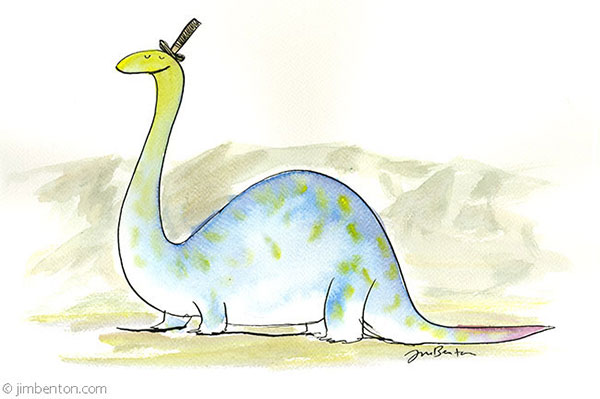
by Jim Benton
Q: We recently met at the Las Vegas Licensing Expo. For an artist who doesn’t understand what a licensing show is all about – how would you explain it?
You try to get manufacturers to put your stupid shit on their stupid shit and pay you a royalty for each one sold.
You are competing for that space with Disney and Nintendo and the NBA, but they charge more than you, and if there are customers out there that like your art/brand, you might have a chance.
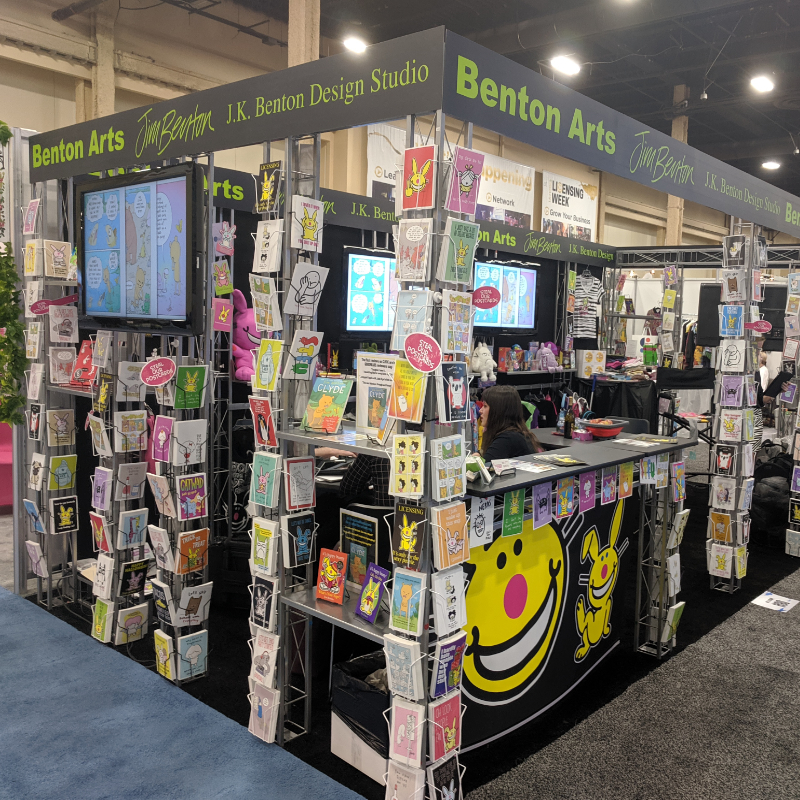
Jim Benton’s stand at the Licensing Expo 2019
Q: For the one-man-band illustrator who wants to develop original, licensable properties like you have, where should they begin?
If there was a formula, I’d sell it.
People come at this from a lot of different angles. One thing that often matters is a “platform”. That just means you need to be able to tell a manufacturer EXACTLY why they will make money with your art/brand.
Can you prove it? Can you show actual success somewhere? Is it better than anything else they’ve seen? Is it a perfect fit for THEIR customer?
You’re asking them to take a risk. Do everything you can to help feel good about that.
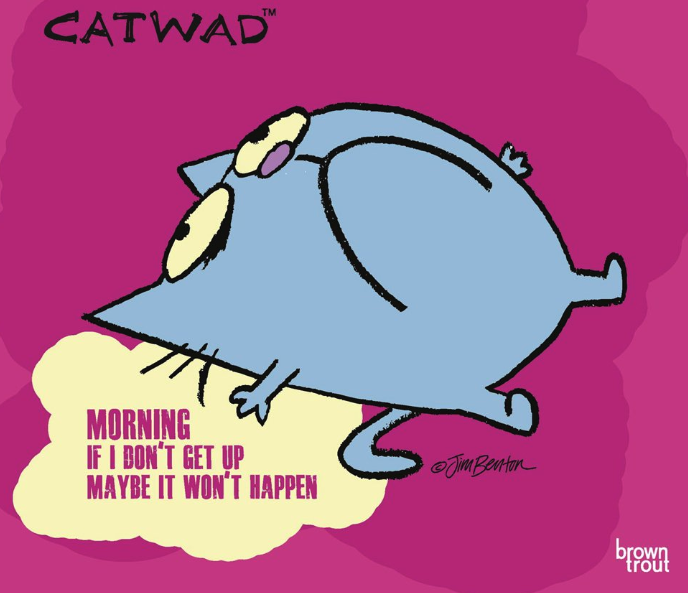
“Catwad” Calendar by Jim Benton
Q: What are some of the mistakes you see being made by young or aspiring artists, specifically those who want to license their art?
It’s hard for me to call something a mistake: it might just be program that they haven’t sold YET.
But sometimes I see people try to jump in before they have all the answers—who the brand is for, exactly, and why the manufacturer /publisher /network should take a chance.
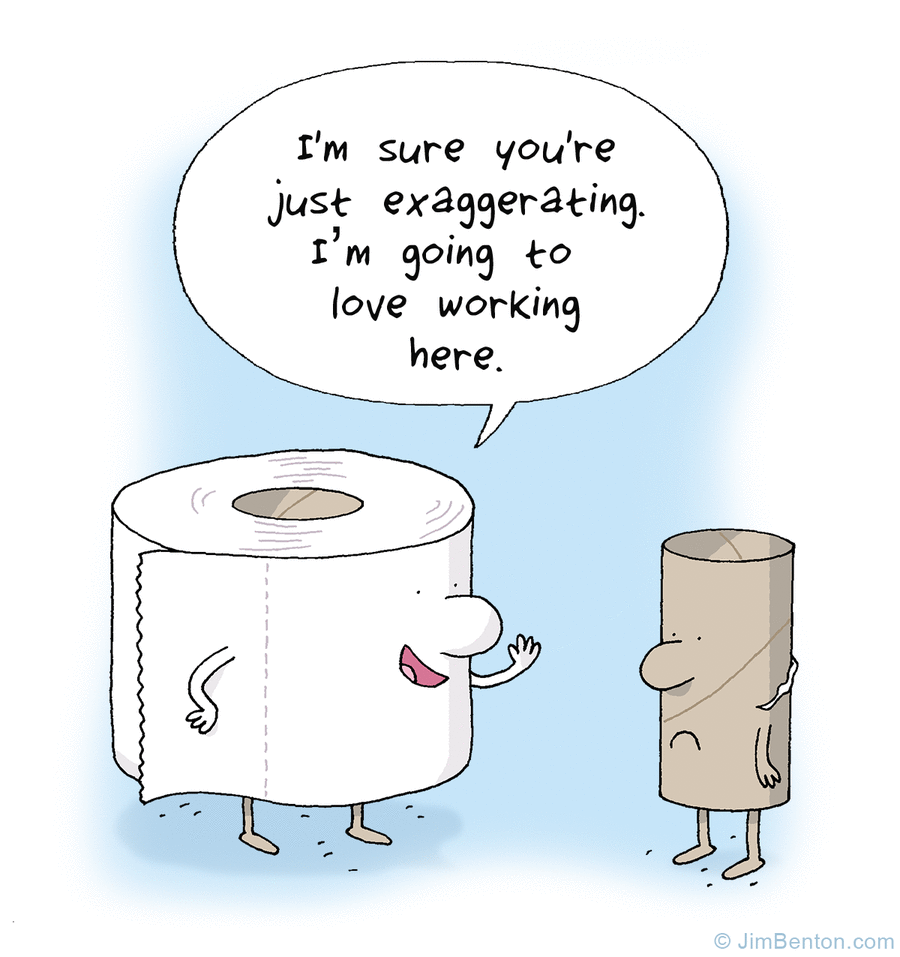
by Jim Benotn
Q: You’re a big-time redditor and have a large Facebook following. What advice would you give artists when it comes to social media?
The advice I’d like to give myself is JIM GET OFF SOCIAL MEDIA. I really have no expertise in this area. I just post idiotic stuff and see what happens.
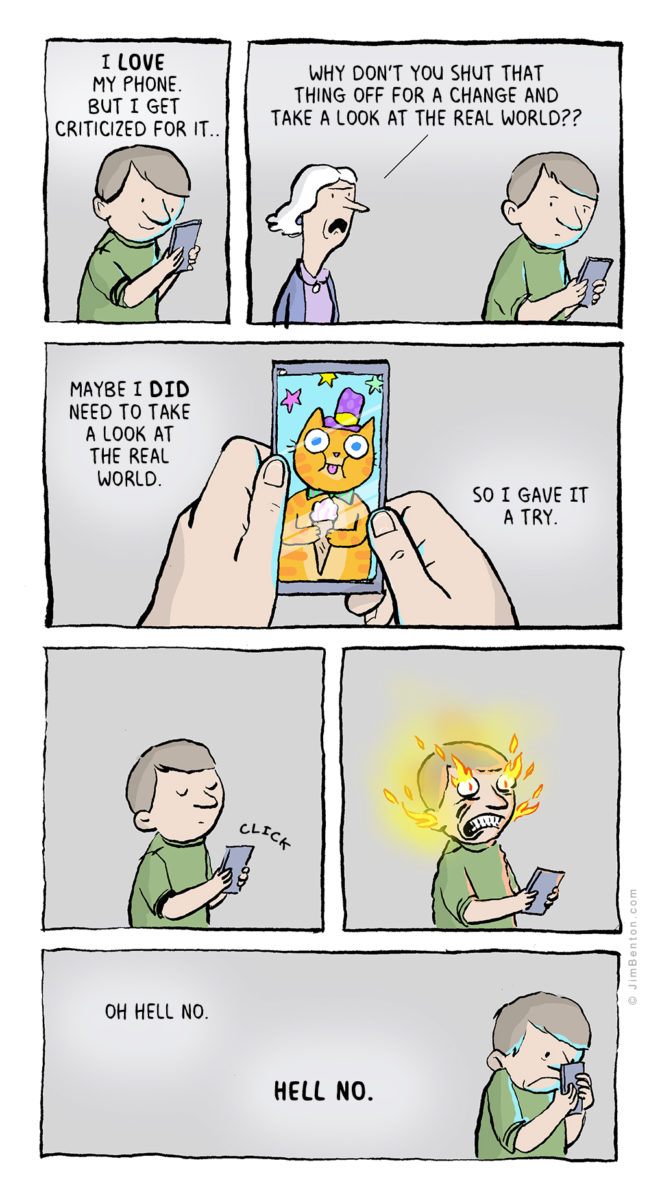
“I love My Phone” by Jim Benton
Q: Finally – what are the biggest life lessons you’d give to someone looking to create a successful career as an independent artist?
Never forget that YOU ARE NOT YOUR WORK. If you make a sandwich and somebody doesn’t want it, that doesn’t destroy you. The same should hold true for a brand or art you create.
Maybe it’s just not the sandwich that person wanted—or maybe they’re full-or maybe they don’t like sandwiches – gluten allergy? —you may never know.
Either serve it to somebody else, or make a different sandwich. But don’t let it destroy you.
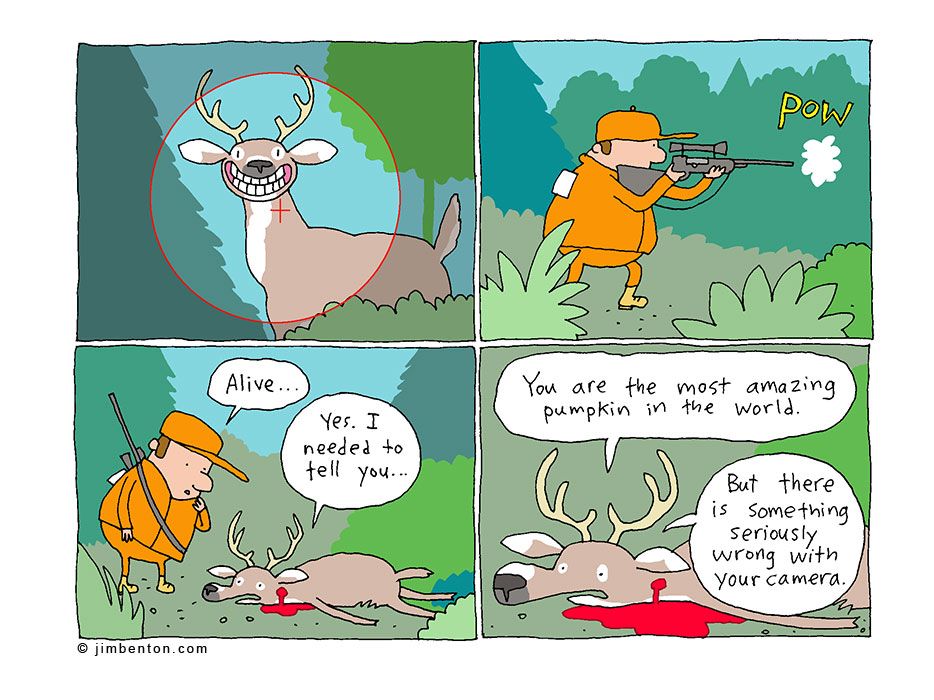
by Jim Benton
Q: Anything else you’d like to mention and/or plug?
SURE! New books!
CATWAD, CLYDE and FRANNY K. STEIN!
My Takeaways…
Thanks to Jim for sharing his experience with us!
Here’s a few things that stood out to me…
-
Massive Output. Jim’s creative output is incredible – just look at his list of projects in his first answer, or see the incredible list of all his properties here. His cartoon output alone is colossal – then you’ve also got his books, scripts, product designs and more. Of course he has been creating since the 1990s (even before?) – but the lesson here is you don’t have huge success without huge amounts of work.
-
Work Quickly. Benton said that working in a T-Shirt shop taught him to work quickly. Looking at his work and the volume of it, I think his ability to work quickly is a key contributor to his success. If you can work quicker than the competition, then you’ll win every time. So developing your abilities so that you can work fast is always a good idea.
-
It’s Happy Bunny® (and the 3/4 of a billion in sales it made) only came into existence because Jim had a single design that he liked, and kept being drawn back to. No one asked him to create that design, no one commissioned him. He just had an idea, created it, then he personally went out there and showed it to potential licensing partners, hoping they would like it too. It was no overnight success. And it’s fascinating to me that if Jim had simply ignored that sketch, brushed aside his attraction to it, or at any point thought ‘there’s no market for this’ and quit – then that almost-a-billion in sales would never have happened.
-
Licensing Is Simple Enough. I like Benton’s potted summary of licensing. From the artist’s point of view, licensing is really about selling your work to manufacturers – not directly to customers (though the more evidence you have of interest from an audience, the easier it will be to sell to manufacturers). Putting your stuff out there and giving it every chance to succeed is all you can really do. Either manufacturers like your stuff and want to license it, or they don’t. You’ll never know until you’re out there. Just because you can’t see a market for it right now doesn’t mean people won’t buy it and love it.
‘People don’t know what they want until you show it to them’ – and it’s your job as an artist to show them stuff. -
Think Like A Licensee. Great advice from Jim about putting yourself in the manufacturer or licensees shoes. Make their life easy, prove it’s got a good chance of connecting with their customers, or simply be better than whatever they currently license (ideally all of the above). Licensing, whether online or off, is a partnership – so align your objectives with those of your desired partner.
-
Case in point: Know Who You Are Designing For. Jim identified this as one of the problems he sees artists making. Why should a publisher take a chance on your stuff? That question is a lot easier to answer if you know your audience intimately. Social media has made it easier than ever to find and connect with a niche audience – so there’s really very little excuse for not knowing who your target market is.
Thanks to Jim for taking the time to answer my questions – please check out the links below to see more of his work, more interviews, and where to follow.
Thanks for reading!
Get Some of Jim’s Funny Stuff:
- It’s Me. (Catwad #1)
- Clyde
- Dear Dumb Diary
- Bad Hair Day (Franny K. Stein, Mad Scientist)
- Dealing with The Idiots In Your Life
- Other Jim Benton Books
You should also go check out Jim’s:
More Interviews with Jim:
More T-Shirt Artist Interviews:
If you enjoyed this article, you can find more of my artist interviews below:
For alerts about future artist interviews, you can subscribe to my weekly newsletter here.
And if you have a suggestion for an artist I should interview, please send me a message.

